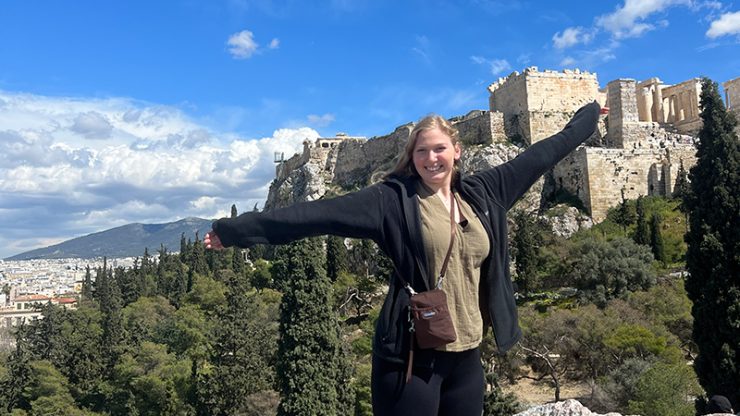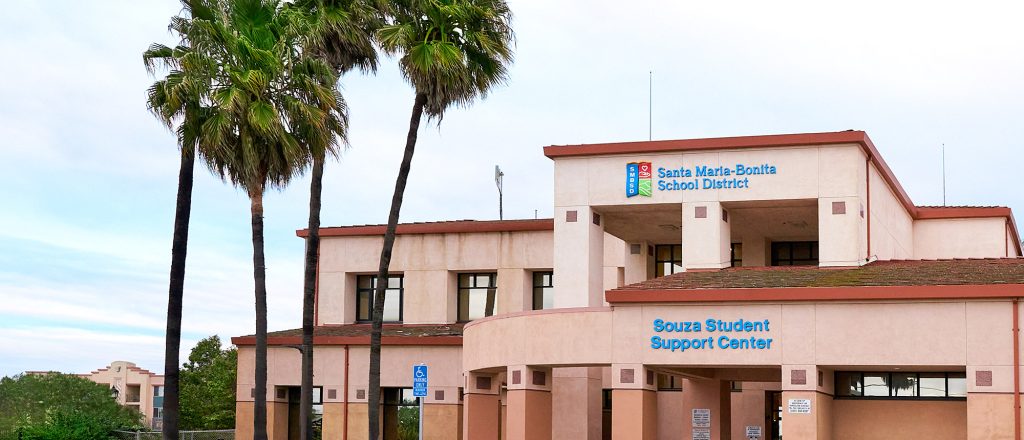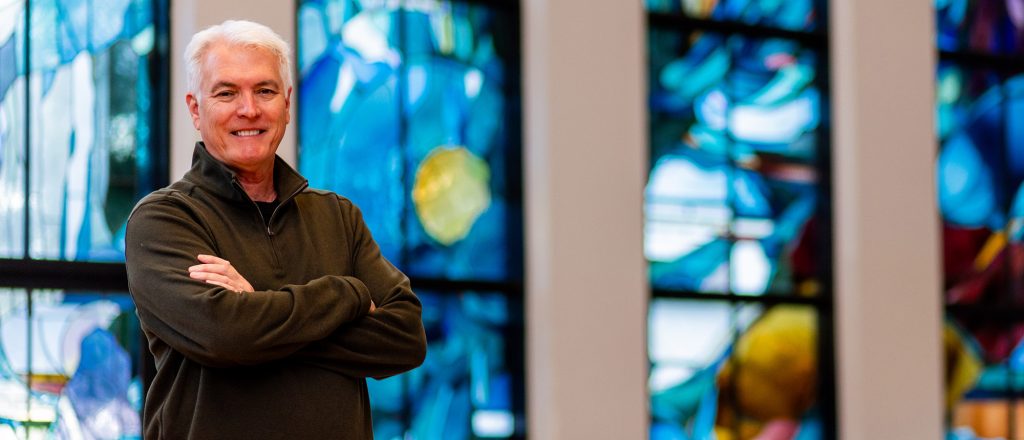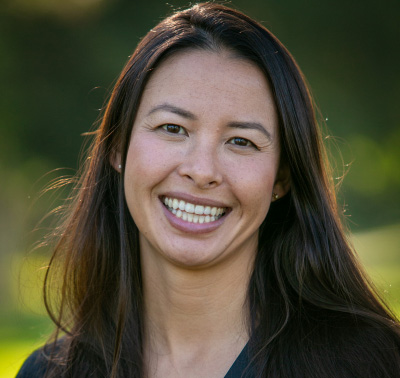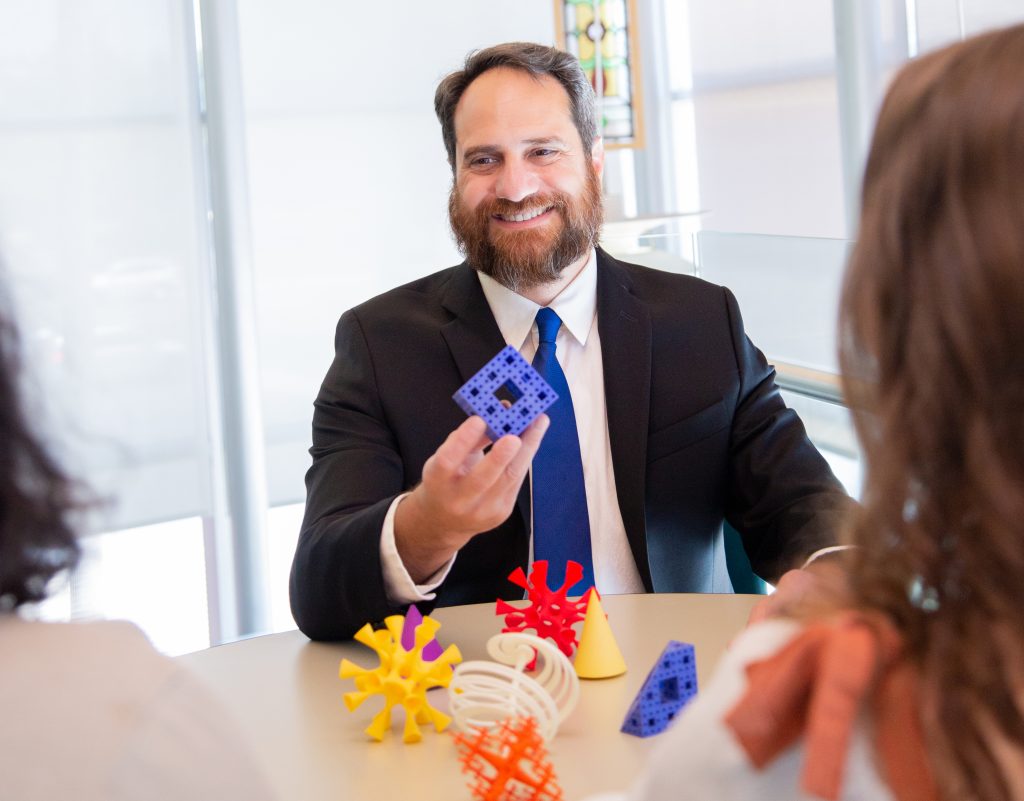Spring break might be about relaxing for some students, but for Calley Stein and others, it’s an opportunity to build a deeper connection to their course material through a faculty-led travel seminar.
In April 2023, Stein and 14 of her classmates joined professor Brian Collins, PhD, on a trip to Athens, Greece, in search of new perspectives on the ancient Greek philosophy and history they’d been studying in the first half of the semester on campus.
A tour of the ancient world is guaranteed to make an impact, but Stein said learning about sites like Plato’s Academy or the Acropolis before seeing them in person made it even more “surreal.”
“If I had just gone to Greece without prior knowledge of the history of Athens, I don’t think I would have gotten as much out of the trip,” Stein said.
Stein also is grateful that Collins designed a trip that was not just educational but fun. Some days were planned out to see many different places, but Stein and her classmates had enough downtime to relax or explore on their own.
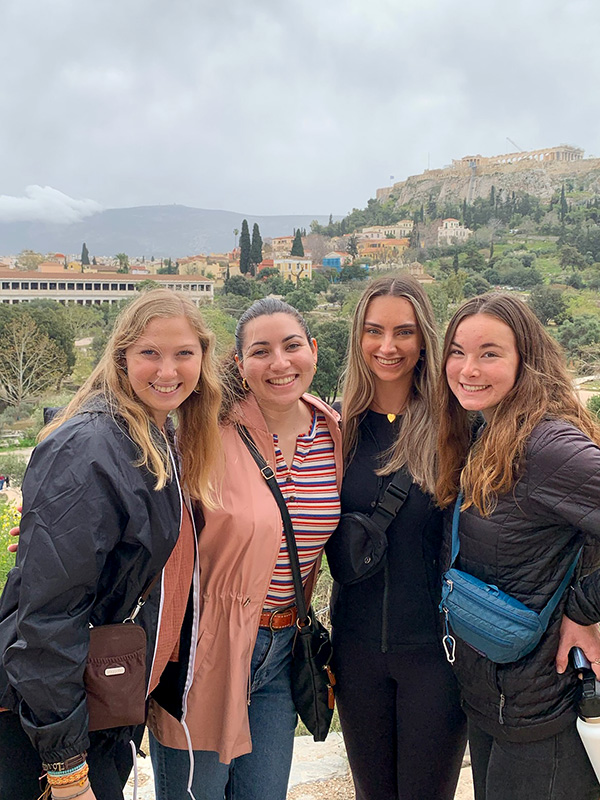
The once-in-a-lifetime opportunity was Stein’s first time studying abroad. Now a senior, she said she incorporates the knowledge of a new culture into her everyday life and shares it with others at home.
Collins, Stein said, helped her feel comfortable with traveling internationally: “He prepared me well for what I should bring and what to expect with what we would be doing every day. The line of communication was always open, he was responding to emails and texts very quickly, and he was able to answer all of my questions.”
Stein’s most defining experience was getting to know her classmates in and out of the classroom.
“Being able to share such an amazing experience with other people bonded us, and even a year later, I still talk to these people that I spent a whole week with,” she said. “We all got so close, and looking back on this experience, I wouldn’t have wanted to travel with any other group.”
Gateway to Exploration
In June, assistant professor Sophia Khadraoui-Fortune, PhD, took 10 students to Paris, France. The class learned French in the morning and explored Parisian landmarks in the afternoon. They stayed with host families and ventured out on the weekends.
The monthlong course bridged the gap between a one-week travel course and a full semester study abroad program.

“I know that for some students, the prospect of going abroad for an entire semester can be intimidating,” Khadraoui-Fortune said. “I provide an alternative that is more manageable for those who may feel apprehensive about a longer commitment.”
The students learned about Paris through readings, discussions and presentations over the spring semester, then studied French at Institut Catholique de Paris for additional course credit.
Although Paris offers unrivaled cultural and historical significance, Khadraoui-Fortune didn’t choose the city for its iconic status alone.
“Paris serves as a gateway to understanding broader aspects of French society, history and arts,” Khadraoui-Fortune said. “With its diverse population and cultures, I believe it is setting the stage for further enticing exploration in other Francophone countries.”
Different Locations, Same Quality Education
Faculty-led programs are some of the best ways to get more students to travel abroad academically. There’s no limit to the number of seminars the university can host — as long as faculty are ready to put them together and students want to enroll.
However, the quantity of seminars isn’t the key motivator for Matthew Yates, PhD, director of the Office of Education Abroad — it’s offering quality education.
“It’s not just taking students abroad for fun … but having a very rigorous, well-designed course with outcomes we assess and assignments that make sense, and excursions that … are relevant to the actual course,” Yates said.
Though other universities have these types of study abroad programs, not all are as successful as Cal Lutheran’s. That’s partly because the travel seminars lean into what distinguishes the university: direct contact with faculty focused on teaching.
Yates said when faculty come to him with an idea for a seminar, he prompts them to consider whether it is a general education course, a requirement for a specific major, or a common elective.
He said the flexibility to design a course that can align with the academic plans of more students is also a way to attract more students to these programs: “Because faculty need to sell these in a way. They’re electives and not like Intro to Psychology, which is required for a lot of students.”
Another challenge to recruiting students to sign up for faculty-led travel seminars is the cost.
Although the instruction is covered by standard tuition and fees, the student has to pay for flights and accommodations on the tour, even if they’re already paying for room and board on campus. That can be a daunting amount for students. However, the university offers a study abroad scholarship, and students also have the option to go to the Office of Financial Aid to adjust their cost of attendance — potentially earning additional aid to cover the seminar.
Creating a Global Classroom
Travel seminars are not only a trip to another country, but also a focused class incorporating essential parts of the course material. Along the way, students form bonds of learning and discovery with their classmates and faculty to ultimately re-create the Cal Lutheran classroom experience in locales around the world.
Upcoming faculty-led travel seminars will take Cal Lutheran undergraduate and graduate students and their professors to Egypt, Spain, Japan, Mexico, Ireland and Germany.
You can learn more about these programs and other opportunities for education abroad at CalLutheran.edu/oea.
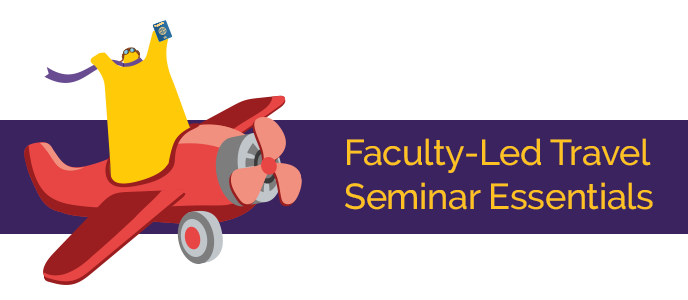
Common Questions
- How do you sign up? Every student can participate in faculty-led seminars. Start your journey by reviewing the upcoming courses at CalLutheran.edu/oea and schedule an advising appointment to see how it can fit into your academic plan.
- Do you earn credit toward your degree? Yes, every travel seminar counts for credit.
- Will my financial aid cover it? Your existing financial aid covers the tuition for the course. You’ll need to apply for additional assistance to help with travel and accommodation costs. You might be able to adjust your Cost of Attendance, which can release additional funds to cover the seminar.
Upcoming Seminars
- Ancient Egyptian Philosophy in Egypt
- Exploring Japanese Society, Popular Culture and Media in Japan
- Comparative and International Education in Mexico (Graduate-level)
- View all →


